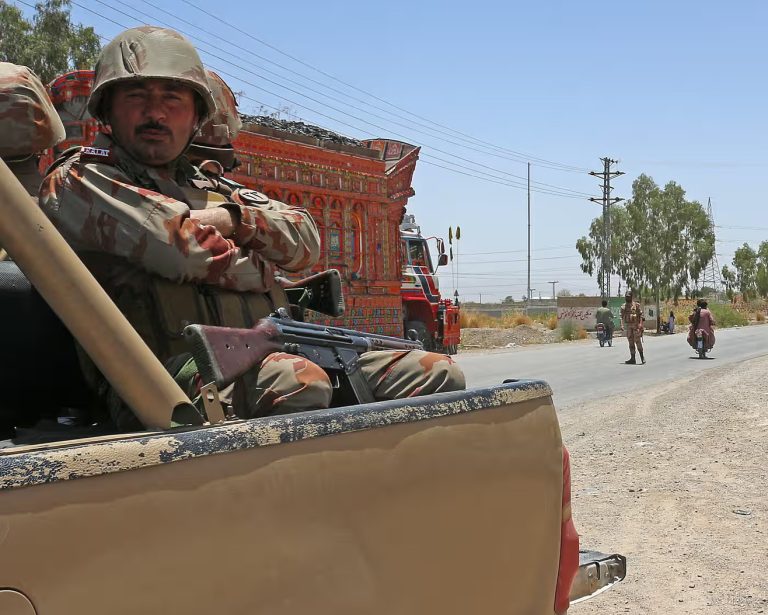On Wednesday morning, Pakistan pointed the finger at India for a suspected suicide bombing targeting a school bus in Balochistan, a volatile province in the southwest, resulting in the tragic deaths of four children.
The incident occurred as the bus traveled toward an army public school in Khuzdar. Local authorities reported that an assailant rammed a vehicle into the bus before triggering an explosive device.
According to Khuzdar’s deputy commissioner, Yasir Dashti, the attack claimed the lives of four children, the driver, and a security guard, while leaving 12 other children with severe injuries. Initial findings suggest the explosion was a suicide attack.
The deceased children included 12-year-old Hifsa Kausar, 16-year-old Esha Saleem, and 12-year-old Sania Somroo, with efforts ongoing to identify the fourth child victim. No militant organization immediately took responsibility for the attack.
Pakistan’s military media office quickly released a statement accusing India, its long-standing rival, of masterminding and executing the attack through proxies.
The military’s statement claimed that India is using “terrorist proxies as a state-sponsored tool” to carry out attacks in Pakistan, targeting vulnerable groups like children and civilians.
This accusation emerges amid heightened tensions between the two nuclear-armed neighbors. Earlier in May, India and Pakistan exchanged drone and missile strikes, nearly escalating to full-scale conflict before a ceasefire was brokered on May 10.
The recent flare-up was sparked by an April militant attack in Indian-administered Kashmir, which killed 26 people. India blamed Pakistan-supported groups and retaliated with missile strikes on alleged terrorist bases across the border.
Pakistan countered by launching missiles at Indian military targets, escalating the situation further. Following the ceasefire, India warned that any future terrorist attacks on its soil would be treated as an act of war.
Pakistan has consistently denied involvement in the Kashmir attack and has increasingly accused India of orchestrating a surge in militant activities within its borders, particularly in Balochistan and Khyber Pakhtunkhwa.
Balochistan has long been plagued by a violent insurgency led by groups like the Balochistan Liberation Army (BLA), which has claimed responsibility for recent attacks, including suicide bombings and a train hijacking.
In Khyber Pakhtunkhwa, near the Afghan border, the Pakistani Taliban (TTP) has intensified its operations, contributing to a rise in violent incidents across the region.
Prime Minister Shehbaz Sharif reinforced the military’s claims, alleging that India’s backing of terrorists was evident in the “cowardly” attack on the school bus, targeting innocent children.
Shahid Rind, a spokesperson for the Balochistan government, condemned the bombing as a stark example of “India’s state-sponsored terrorism” aimed at destabilizing Pakistan.
The attack bears similarities to a devastating 2014 TTP assault on an army public school in Peshawar, Khyber Pakhtunkhwa, which left over 100 children dead, marking one of Pakistan’s deadliest attacks on schoolchildren.

